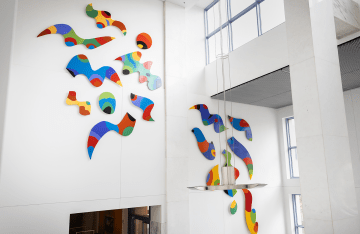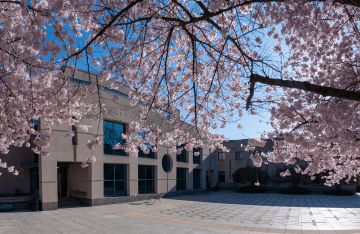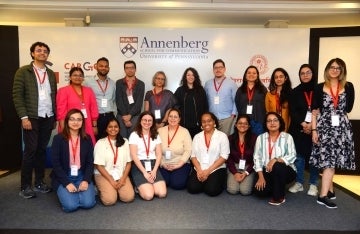Do Liberals Make Moral Connections Through Pop Culture?
Doctoral candidate Megan Genovese studies the intersections of politics and popular culture.
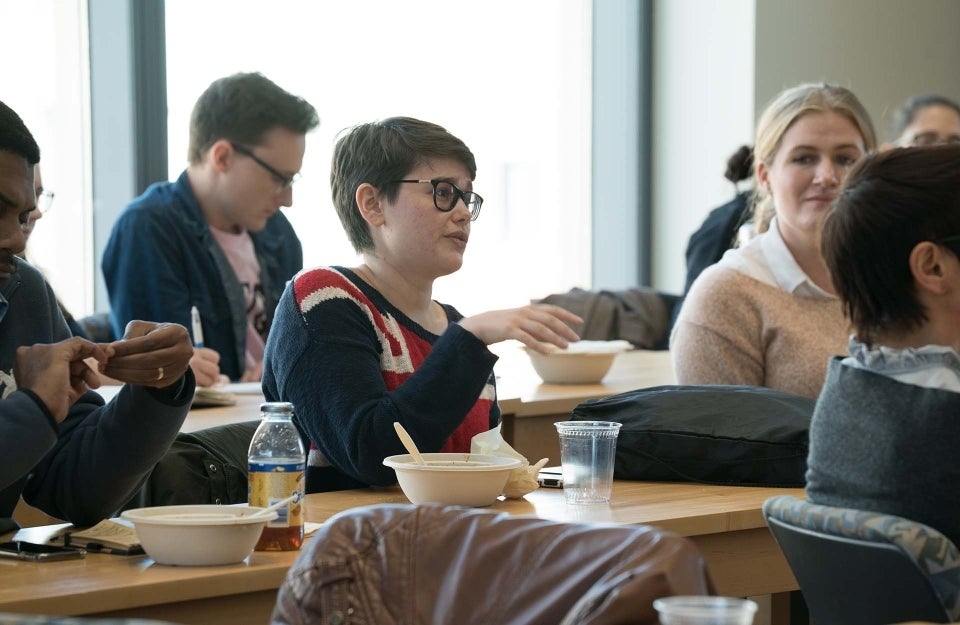
“When Voldemort is President, We Need a Nation of Hermiones,” reads the sign.
In the years since Donald Trump was elected president, many protest signs have featured pop culture, referencing touchstones like Harry Potter, Beyoncé lyrics, Star Wars characters, and Hamilton songs, just to name a few.
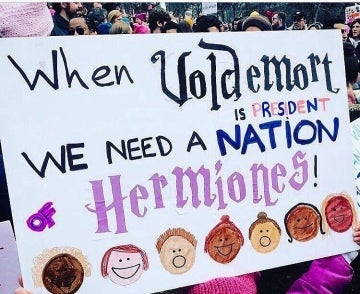
Seeing these pop culture-infused signs at the Women’s March in January 2017 got Megan Genovese thinking. A doctoral candidate at the Annenberg School for Communication, Genovese embarked on a project to understand the intersection of American politics and pop culture.
Actual religious affiliations aside, conservatives in America are generally seen to have ownership over moral and religious justifications for political ideology, while liberals are seen as caring about numbers and policy. But Genovese’s personal experience led her to believe that those on the left are just as morally invested in their decision making as those on the right.
Drawing on her background in media studies and fan studies, she theorized that pop culture references were a way for leftists to connect to one another and build solidarity around political and social issues, in lieu of using religious arguments.
“When people are trying to communicate complicated ideas that hinge on morality,” Genovese says, “what do they do when they don’t have a Christian theological framework to hang it on? I think they turn to pop culture as a point of commonality for communicating with people who don’t necessarily share their experiences.”
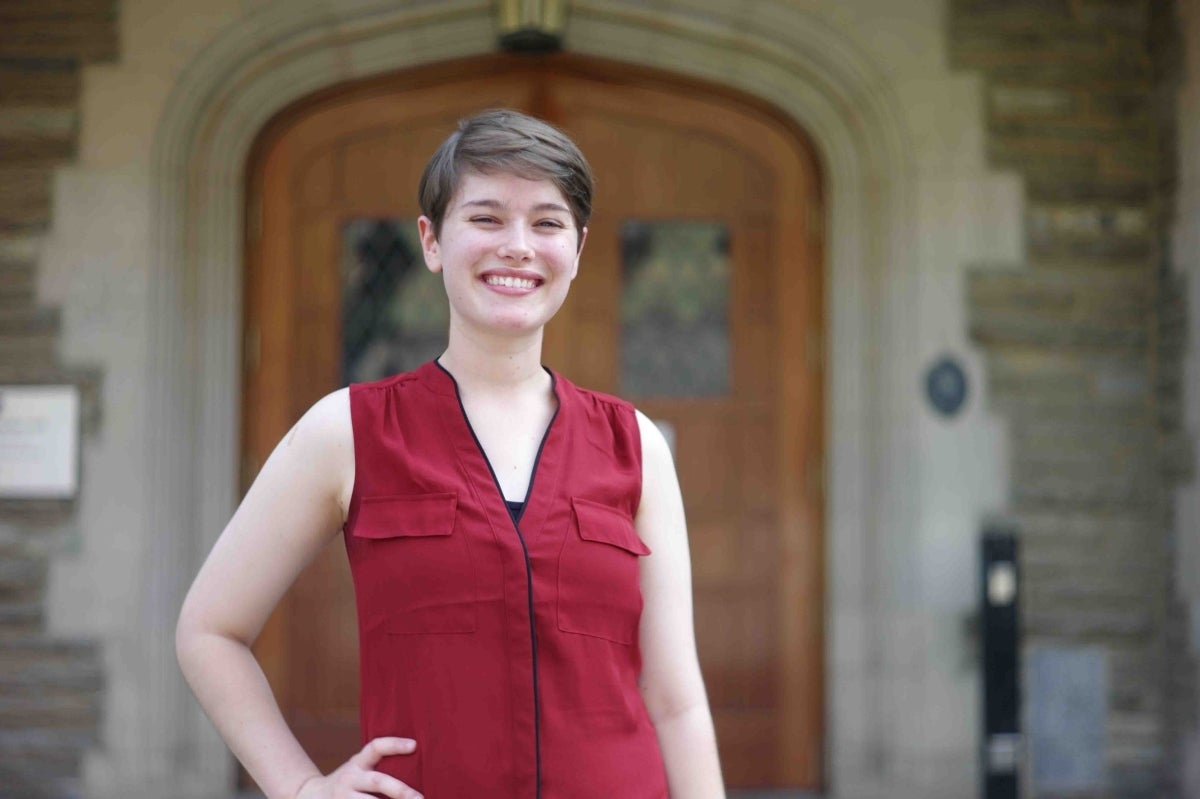
To test her idea, she is conducting a series of focus groups and individual interviews with participants she recruits through fan spaces, like conventions and online forums. She begins by asking the participants questions about their fandom and then moves into questions about politics. She’s interested in learning about their interactions with and trust in the political system as well as how they understand their own morality in comparison with the morality of people they don’t agree with politically.
Nearly everyone Genovese has encountered through fandom is moderate or left-leaning, and many of her participants are Star Trek fans, which makes sense to Genovese.
“Since the show itself centers on themes of building a good society, forming a utopian future, and how to interact with people who are different from you,” says Genovese, “it follows logically that people who are really into Star Trek would also be invested in answering these questions in their own world.”
One thing she’s most surprised by? That her participants haven’t discussed Harry Potter more. Despite J.K. Rowling’s iconic series playing a big role in the popular discourse during the 2016 election, Genovese says it hasn’t come up as often as she expected in her interviews. She also points out that she’s found no evidence to support the conservative media narrative that the left is obsessed with impeaching Donald Trump on personal grounds rather than on substantive issues.
“My participants have spoken about Trump’s election or his policies as motivation for their own political involvement,” says Genovese, “but their engagement is in terms of working for the policy outcomes they want, not in terms of constantly criticizing him personally.”
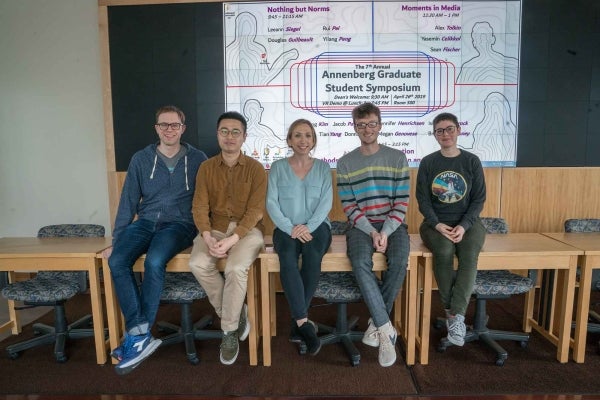
In addition to conducting her research, Genovese is involved in various committee work at Annenberg. She currently serves on the Steering Committee for the Center for Media at Risk — directed by her advisor, Professor Barbie Zelizer — and she has previously served on Graduate Student Council and the Graduate Student Symposium Committee. At present, she is quarantining in Philadelphia with her sister, and she’s working on her dissertation, which she plans to defend this summer, and cross-stitching to pass the time.
Unlike some of her peers, Genovese doesn’t intend to pursue a career in academia. She’s more interested in civil service or nonprofit work and hopes to be part of efforts to build systems that work for everyone.
“I just want everyone to win,” she says.

